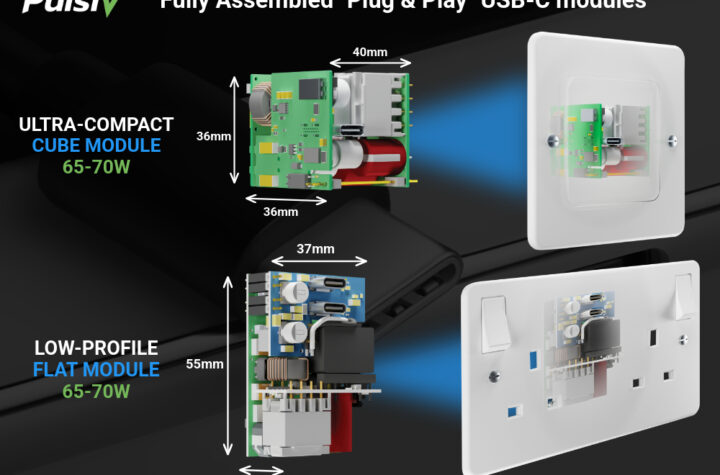
Euro 1 to Euro 5 diesel engines can now be retrofitted with filtration systems that meet Euro 6 standards using technology developed by LiqTech. The US-listed company has its headquarters in Denmark. Over the past 11 years it has develop into a leader in the use of silicon carbide or SiC to make high performance, high value liquid and gaseous filtration products. The company’s portfolio of catalyzed DPFs (cDPF) is based on its proprietary washcoat technology and metal oxide composition. The coating can be optimized for low soot combustion temperature, catering for low and high NO2 levels. High NO2 ratios are required for optimal function in an SCR system.
For retrofitting Liqtech recommends zone coatings which make it possible to balance regeneration and NO2 performance according to the specific requirements of the region in which the vehicle is being used. The company’s flexible production facility based in Copenhagen allows it to make customer specific formulations for specialized applications for both OEM as well as the retrofit markets. The company hopes to use this model to give it the platform to expand its catalyst production in North America and Korea. LiqTech says it is focused on working in partnership with customers, coating suppliers and industry experts to help develop smaller, cost effective systems for the industry that keep back pressures low while cutting down on the size and complexity of the systems currently in the market.
Some of the steps LiqTech has taken to achieve this include developing filters with higher porosity, adding high filtration membrane technology to filters with high porosity, and improving the production process that minimizes customer warranty losses when regeneration fails to occur.
Automotive Industries (AI) asked newly-appointed Chief Executive Officer Finn Helmer to share his vision for LiqTech.
Helmer: I want LiqTech to strengthen its position as a flexible manufacturer of Silicon carbide particle filters. By constantly developing our filters we want to be able to offer to the market both the latest filter technology and the highest quality. Being a medium size company we also want to grow our flexibility and shorten our delivery times. We are at the same time preparing for high volume production as the market is growing, and there is a demand for flexibility as well as volume capability. We also understand the importance of on-time delivery, and gear our production to ensure this.
AI: How do you see your previous experience helping you to achieve your goals for LiqTech?
Helmer: I have over the years been involved in more than 50 start-ups, two of which grew to a revenue of more than 100 mill dollars a year. I believe LiqTech have a similar potential, and to me it will be an honor to help facilitate this, working together with our eager and motivated employees.
AI: What are LiqTech’s automotive capabilities?
Helmer: We have flexible production capacity, and can manufacture and deliver smaller and medium size series fast. On the other hand we see a growing demand for volume, and are preparing for this. Our production capacity at the moment is big enough for a medium- sized OEM contract.
AI: What are your objectives when it comes to the company’s range of catalytic coatings and related solutions?
Helmer: We want to be at the leading edge of the technology, so we can offer the customers a reliable solution with the latest catalytic coatings you can find on the market. An example is our first asymmetric filter, which can lower the reverse pressure by more than 20 % . We have developed a 150 cpsi silicon carbide diesel particulate filter (DPF) for high soot loading applications which are designed for passive emission control systems. LiqTech filters specializes in applications with low heat exhaust. The 150 cpsi range can cut warranty claims when passively regenerated filters are subject to long periods of low power. In addition to its durability in difficult operating conditions, the new 150 cpsi DPF has been designed to catch the smaller diesel particles produce by Euro 3, 4 and 5 diesel engines, and has been verified to filter in excess of 99% of nanoparticles.
AI: What is LiqTech’s vision of the future of optimized emission control?
Helmer: I hope that European Union (EU) will enforce EU norm 6 as a standard for all vehicles, without differentiating between old and new vehicles. I do find it ironic that the original legislation forced manufactures to reduce the size of particles to the point where they are now a threat to health. The filter technology is so good that you can retrofit an old diesel engine from EU norm 1 (year 2000) with a filter and make it so clean that it will easy meet the EU norm 6.
AI: How do you see LiqTech’s manufacturing facilities expanding globally?
Helmer: Our strategy is to manufacture where the demand is, so if there are sufficient volumes we will set up facilities where they are needed. AI: Will the Copenhagen pattern be followed in North America and Asia? Helmer: Well the production in North America is running as planned and the US marked is served direct from our facility in Minneapolis. So you can say that the strategy seems to work in this case.












More Stories
What to Do After a Motorcycle Accident to Protect Yourself
Injured in a Motorcycle Crash? Talk to an Attorney Now
Danisense launches ‘Online Calibration Portal’ to offer brand agnostic calibration services for current transducers and smoothen the whole process